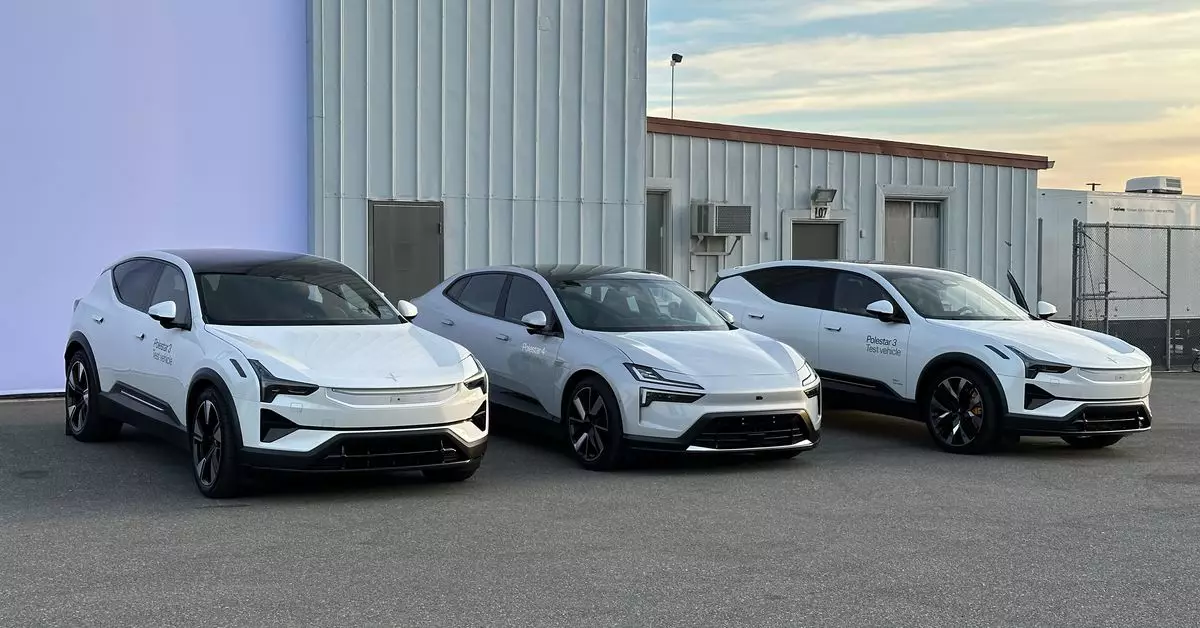The Biden administration has introduced a bold new regulation that has sent ripples through the automotive industry, effectively banning the import of all Chinese vehicles based on security concerns surrounding “connected vehicle software.” This sweeping measure comes amidst escalating tensions between the United States and China, particularly in the realm of technology and trade. The ramifications of this rule are substantial, affecting not only major players like Ford and General Motors but also smaller manufacturers and technology-driven companies that utilize connected vehicle technology.
In an era where vehicles are increasingly embedded with advanced technology, the rule aims to safeguard American citizens from perceived foreign threats. U.S. Secretary of Commerce Gina Raimondo highlighted the multifaceted tools that modern cars employ—cameras, GPS, and microphones—all of which can potentially be accessed by foreign adversaries to gather sensitive data. This regulation targets vehicles and components linked to China and Russia while expressing concern about the potential for foreign exploitation of such technologies.
The rationale behind the ban is clear; connected vehicles could inadvertently provide adversaries with “unfettered access” to critical tech systems, putting national security at risk. The Commerce Department’s approach is applauded as a proactive measure, intending to secure sensitive information and maintain privacy for U.S. citizens in a rapidly evolving technological landscape.
Interestingly, the ban will not take immediate effect; rather, it introduces a phased approach with the most stringent components impacting model year 2027 vehicles, while hardware restrictions will apply to model year 2030 cars. An exemption has been notably made for overweight vehicles, specifically over 10,000 pounds—allowing companies like BYD to maintain operations in the U.S., particularly in electric bus manufacturing.
This staggered rollout underscores the complexity of the automotive supply chain. The Alliance for Automotive Innovation expressed concerns over the abruptness of the ban, noting the challenges posed by the vast and intricate web of global suppliers. Changing suppliers or redesigning components is not a straightforward task, and manufacturers may face significant disruptions as they navigate compliance with new requirements.
As expected, the automotive industry is divided on the implications of this regulation. Some automakers have expressed support for the administration’s objectives while simultaneously warning of potential fallout. For instance, Polestar, owned by Geely, articulates that the ban would severely restrict its ability to operate in the lucrative U.S. market, particularly affecting production facilities located within the country.
Meanwhile, companies like Waymo, which is eyeing collaboration with Geely for next-generation robotaxi services, have to tread carefully around these new regulatory waters. Although Waymo aims to ensure that its purchased vehicles lack foreign-integrated telematics systems, its plans remain at the mercy of U.S. policy, leaving their potential expansion in jeopardy should any restrictions be imposed on their intended vehicle models.
A Shift in the Global Automotive Landscape
This regulation is indicative of a larger strategy used by the U.S. government to pivot away from reliance on Chinese manufacturing and technology. The reality is that China’s automotive sector is booming, currently positioning itself as the leading auto exporter globally. At the same time, the Biden administration is concerned about the implications of this growth on American industry and consumer privacy.
As automobiles become more tech-centric, the risk posed by foreign influence grows. This regulation acts as a barrier against potential threats, reinforcing a commitment to protect American interests. However, the potential fallout from such stringent measures raises questions about accessibility to foreign markets and the long-term impact on innovation within the American automotive sector.
The Biden administration’s new vehicle import regulations serve to address critical concerns regarding national security in an increasingly interconnected automotive world. However, the implications for automakers, both legacy companies and new entrants, could reshape the American automotive market in unexpected ways. The industry must now adapt to these newly imposed restrictions or risk losing competitiveness in a rapidly advancing technological environment.
As stakeholders attempt to balance regulatory compliance with innovation and growth, only time will reveal the true impact of this ambitious policy on the automotive landscape. The road ahead is uncertain, filled with challenges, and calls for agility and strategic foresight in navigating a transforming global market.

